Dogs; “Human’s best friend.” We’re grateful to them for forcing us out of the house; we love cuddling them when we’re down.
When they’re coming in from outside, however, we don’t quite feel those same warm fuzzies.
Dogs stink when they come in from outside for many reasons, from rolling around in feces to rubbing on other dogs.
Your dog could have come into contact with something smelly, as well. Regular grooming can help keep your pup fresh, as well as using a doggy cologne if the smell really bothers you.
Figuring out the source of the stench is always key in terms of getting back to your regularly scheduled cuddles. As they say, “Awareness is the first step.”
Where Does Your Dog’s Smell Come From?
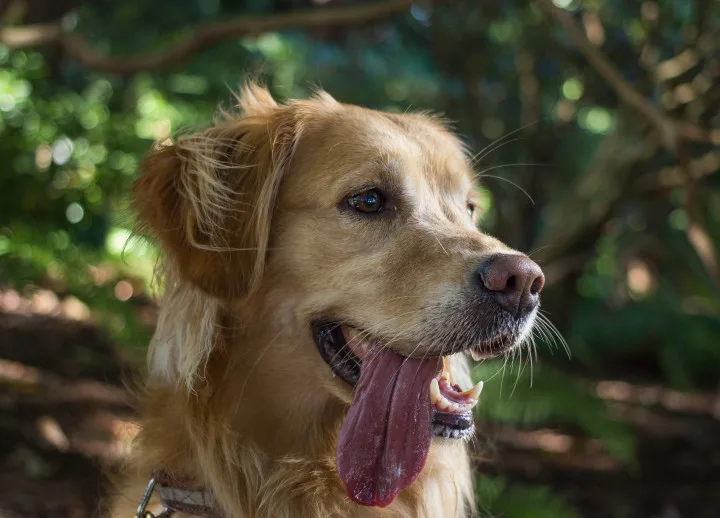 When we think of bad ‘B.O’ (body odor) for ourselves, the first thought that comes to mind is sweat. This is true about the possible primary source of the stench, but in dogs, it comes from an unlikely place.
When we think of bad ‘B.O’ (body odor) for ourselves, the first thought that comes to mind is sweat. This is true about the possible primary source of the stench, but in dogs, it comes from an unlikely place.
Dogs have a few different kinds of odor-releasing glands. Apocrine glands are on every hair follicle and are designed for pheromone release.
Eccrine glands provide what we know as sweat to the nose and paw pads of our furry friends.
Apocrine Glands In Hair Follicles
These glands are in a couple of different spots on the dog’s body–including every hair follicle they have.
Humans have a vastly limited sense of smell in comparison to dogs. We’re still working on what exactly the glands in the fur are for, if not for producing sweat.
Scientists have estimated their use is for secreting pheromones and communicating with other dogs or species.
Our limited ability to detect what a smell means could explain why a different smell is “bad.” We don’t actually know if the smell is terrible, only that it is different.
Humans have separated themselves from the animal kingdom. It was a long time ago, but we have removed ourselves from the delicacies of animal interaction.
This could also work if your dog comes home in a different emotional state than when he left.
We have an odd tendency to define ‘different’ as ‘bad’ simply because it’s not the same as what we’re used to. An old evolutionary trait meant for survival, to be sure.
Apocrine Glands In Ear Wax
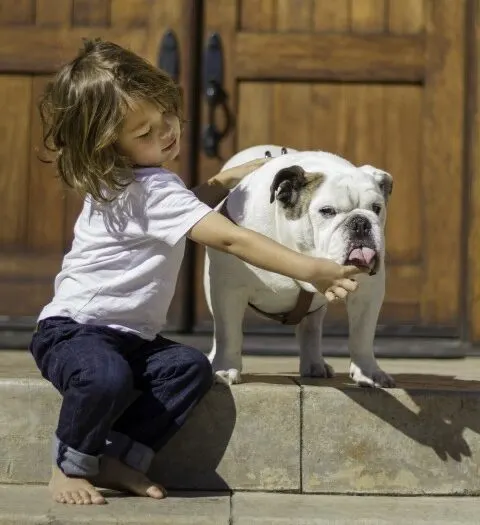 In the ears, these glands branch off into ceruminous and sebaceous glands, essentially working together to create ear wax in dogs.
In the ears, these glands branch off into ceruminous and sebaceous glands, essentially working together to create ear wax in dogs.
This ear wax can house microorganisms and bacteria to build up. This results in Fido smelling closer to Pig Pen from Charlie Brown rather than our favorite personal pillow.
If you want to try cleaning out their ears, make sure you know what you’re doing. Otherwise, take them to a licensed professional that will safely remove all that gunk without harming your precious pooch.
Eccrine Glands
You know how your dog’s nose gets wet. Or maybe you’ve noticed the wet pawprints on dry pavement on a sweltering day?
That would be your dog’s eccrine glands at work. This is what we would understand as sweat.
Dogs use their fur as an insulation method to stay cool in the summer and warm in the winter. It wouldn’t make much sense for them to sweat from their fur as it would have no way to evaporate.
(Fun Fact: the evaporation of sweat, not the sweat itself, is what makes you cooler. Or you could just wear a leather jacket. Maximum cool.)
Instead, dogs can sweat only from the non-fur-covered areas of the body. This limits the possibilities drastically down to noses and paw pads.
Sticky Paw Pads
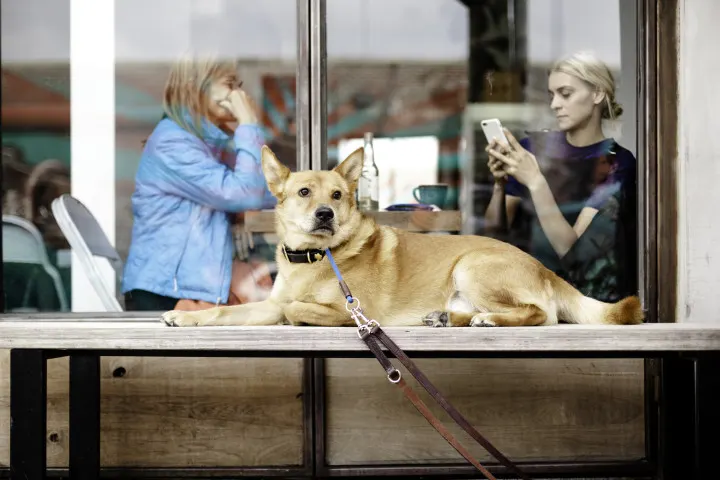 Things stick to your pup’s feet. This translates in a way that we can universally understand: everything sticks to wet objects.
Things stick to your pup’s feet. This translates in a way that we can universally understand: everything sticks to wet objects.
Have you ever gotten your socks wet?
Well, the same concept applies to your dog’s paw pads. Wet feet track in whatever is lying around. If your dog has wet feet, your floor will have whatever is stuck on them after the walk.
Perhaps you could start making sure you wipe off Fido’s feet when you wipe off yours when coming inside. However, don’t wipe their nose.
They need that wet sniffer to sense any possible dangers that could be lurking in the future. The rough estimation is that dogs have 50 smell sensors for every 1 that a human possesses.
What Else Could Make Your Dog Stink When They Come In?
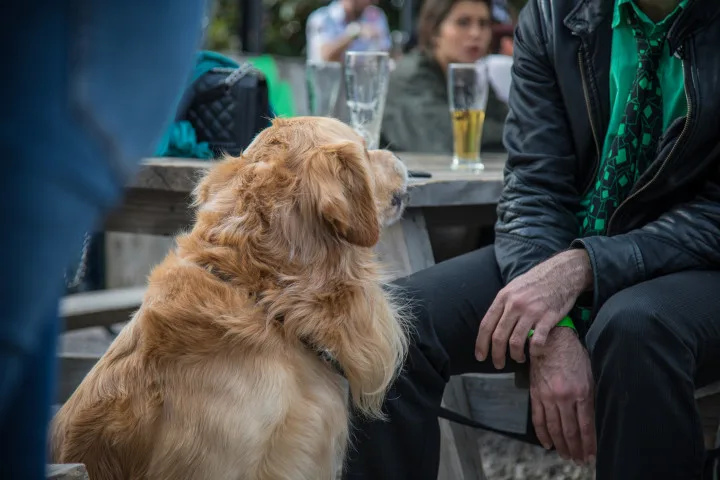 It’s possible that the offensive stench pervading through your home after a walk has nothing to do with your dog. Instead, it could have everything to do with you.
It’s possible that the offensive stench pervading through your home after a walk has nothing to do with your dog. Instead, it could have everything to do with you.
Humans have this funny ability to become ‘nose blind’ to the world around them. Especially if you’ve been in one spot for a prolonged period.
This means that we could leave, get some fresh air, and return to realize a stink has invaded our safety zone.
Smelly Dog Beds
It is estimated that 38.4% of people own dogs in the USA alone. If you’re one of them, you enjoy making sure your fur baby has a plethora of comfy spots.
If you haven’t washed those beds filled with fur, slobber, and debris, you may be sitting next to the stench.
Poor puppy doesn’t have the thumbs to put their bed in the wash. Therefore, that vital job falls on you.
Irregular Brushing and Bathing
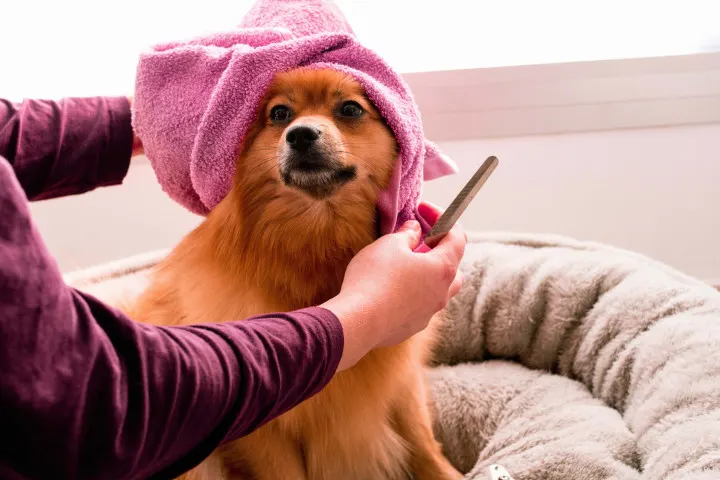 It is also entirely possible that you haven’t gotten around to giving your dog the TLC it needs. At least not enough to fit in with your domesticated indoor life.
It is also entirely possible that you haven’t gotten around to giving your dog the TLC it needs. At least not enough to fit in with your domesticated indoor life.
Remember, they used to be wild creatures who lived happily in their own filth. If you want to keep them smelling sweet, you have upkeep to do.
A lot of constant bathing isn’t good for your dog, as it removes the oils from their skin. These oils keep your pup staying soft and smooth.
However, if you can’t remember the last time you bathed your dog, it’s probably beyond time to do so.
On the contrary, if you have bathed your pup recently, you could try brushing their coat thoroughly.
This thorough brushing helps because stuff can get caught in between their layers of fur. Plus, regular brushing will help reduce shedding.
Routine brushing can also serve as multi-purpose care for you and your canine companion. For instance, the time it takes to brush all the way through can be bond-strengthening as well as smell-removing.
As a bonus, it could make your dog feel like they’re at a spa retreat.
Tips To Keep Away The Stink
Perhaps the answer to truly sleuthing out the cause of the offensive odor lies simply in watching your dog. Being present with and watching them can go a long way in detecting the source of the smell.
If you were out with your dog and were watching them instead of doing something else, you would see more. For example, how they chose just the right poo-filled spot to roll around in.
Perhaps in the time you looked away, they made friends with a skunk. Remember–this is a dog we’re talking about. Dogs like to lick underwear and chew on smelly socks.
There are many reasons your dog or house could smell off or bad when coming into your home. It could be their natural body’s way of trying to stay cool and connected to the world around them.
Potentially, the way that you’re taking care of them could factor as well. Therefore, keep up with a regular grooming routine and consider a doggy cologne in a pinch for those extra smelly times.
There’s truly an almost infinite number of possibilities for why your dog stinks when they come in from outside. It’s certainly some food, or more aptly put, smell, for thought.
Related Questions
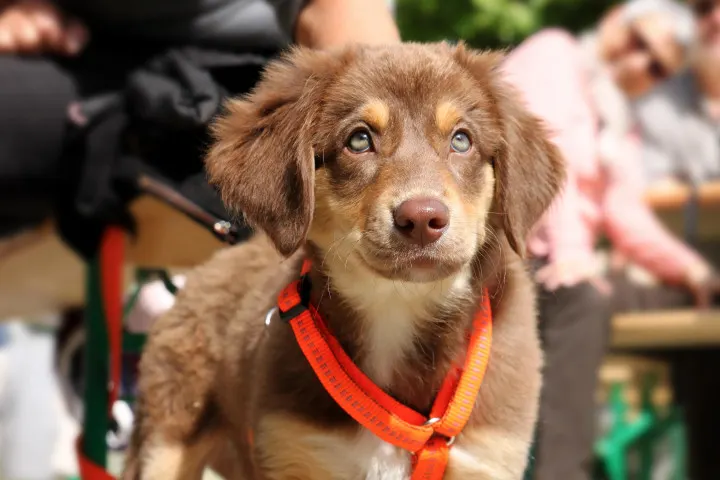 Why does my dog’s breath smell bad?
Why does my dog’s breath smell bad?
It is entirely possible for your dog to have built up the very condition we suffer with ourselves–Halitosis. Which, while sounding like a disease, simply means your dog has bad breath.
This is a condition usually remedied by careful maintenance of the dental health of your dog. It is recommended that you do thorough teeth brushing at least twice a week (using doggy-safe toothpaste, of course).
Additionally, consult your veterinarian for recommendations on products to keep teeth plaque down in between brushings.
It’s also possible your dog just got done munching on some fecal matter, puke, or garbage. They are a dog, after all.
Why does my dog lick their paws?
Any number of factors can cause the occurrence of paw licking. These can include an injury, food allergy, parasite, or a habit formed out of boredom.
If your dog licks their paws casually, it could be that they’re just doing its routine of removing dirt or sand. It’s one of the few ways dogs are able to help you take care of them. They try where they can.
However, if they suddenly start licking one paw aggressively, it could indicate a recent injury. That’s why watching your dog closely is important to stay in tune with their normal behaviors.
If the licking of the paws is a constant and aggressive activity, you may need to consult your dog’s vet. It’s important to see if there might be a more serious underlying factor causing the behavior.
Stacy is a lifelong animal lover who truly believes life just isn’t complete without pets. She’s had pets her whole life (including three dogs and a cat living under the same roof, somewhat harmoniously). She currently resides in NOLA with her husband, son, and two pups, Scooby “Dooby” Doo and Zoey. Stacy always makes a point to learn everything she can about her fur babies, and she has been writing about the pet-parent life for over two years.

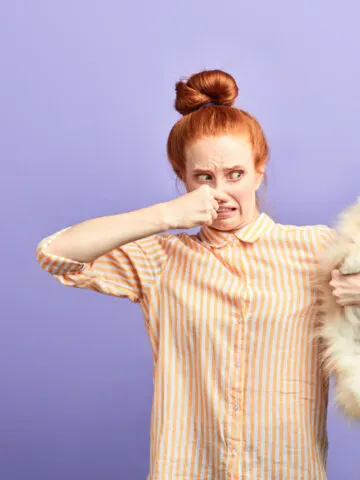

Leave a comment
You must be logged in to post a comment.